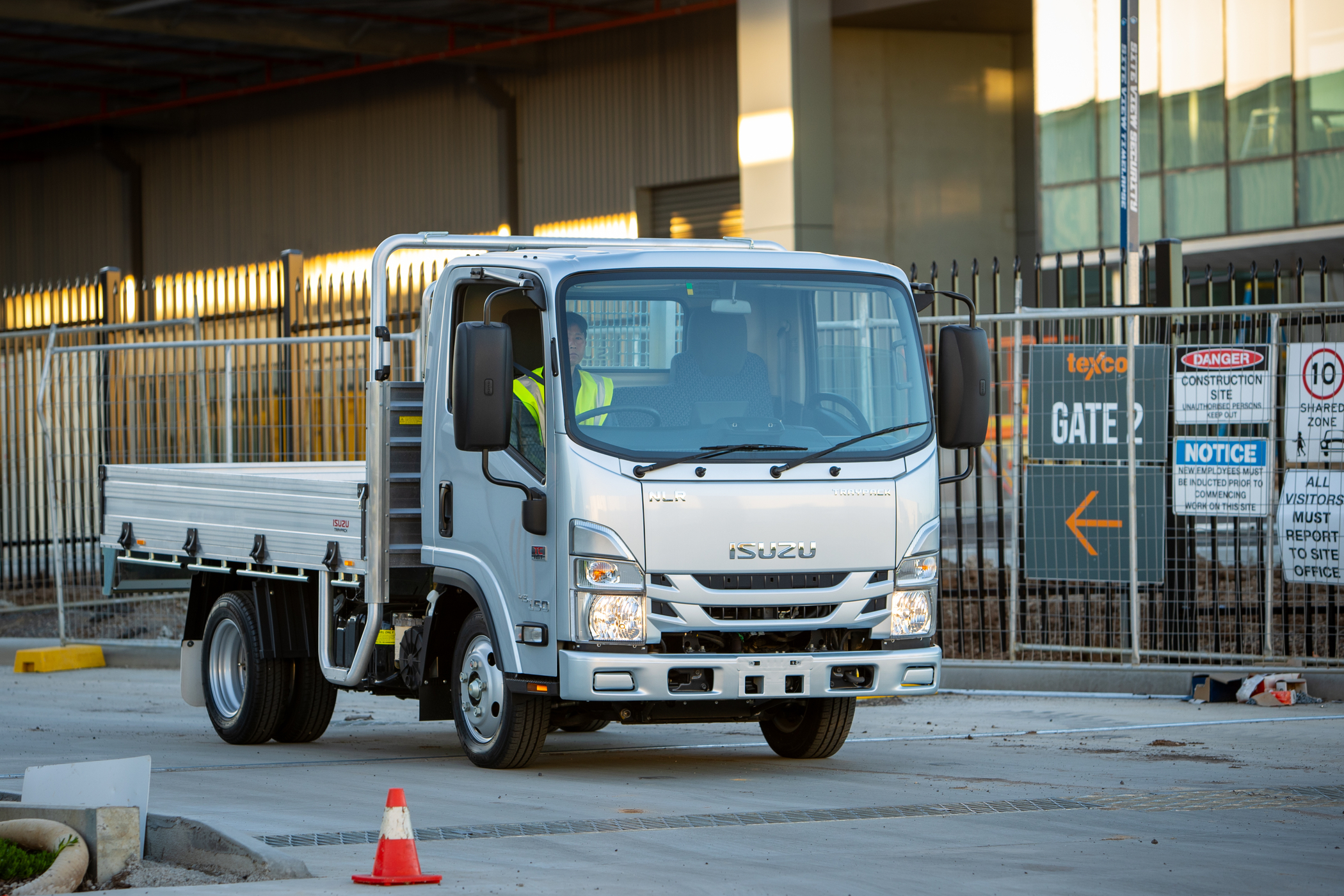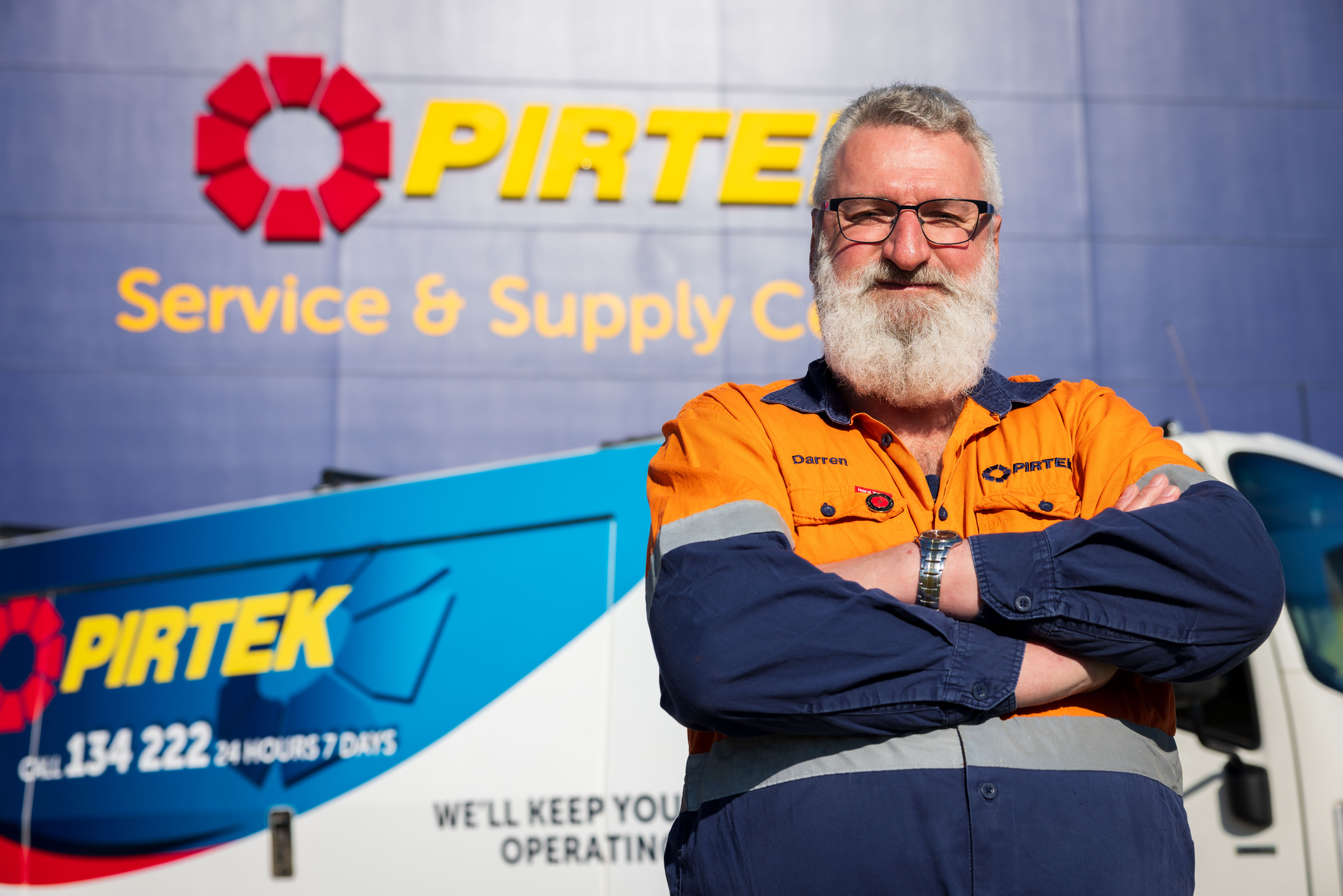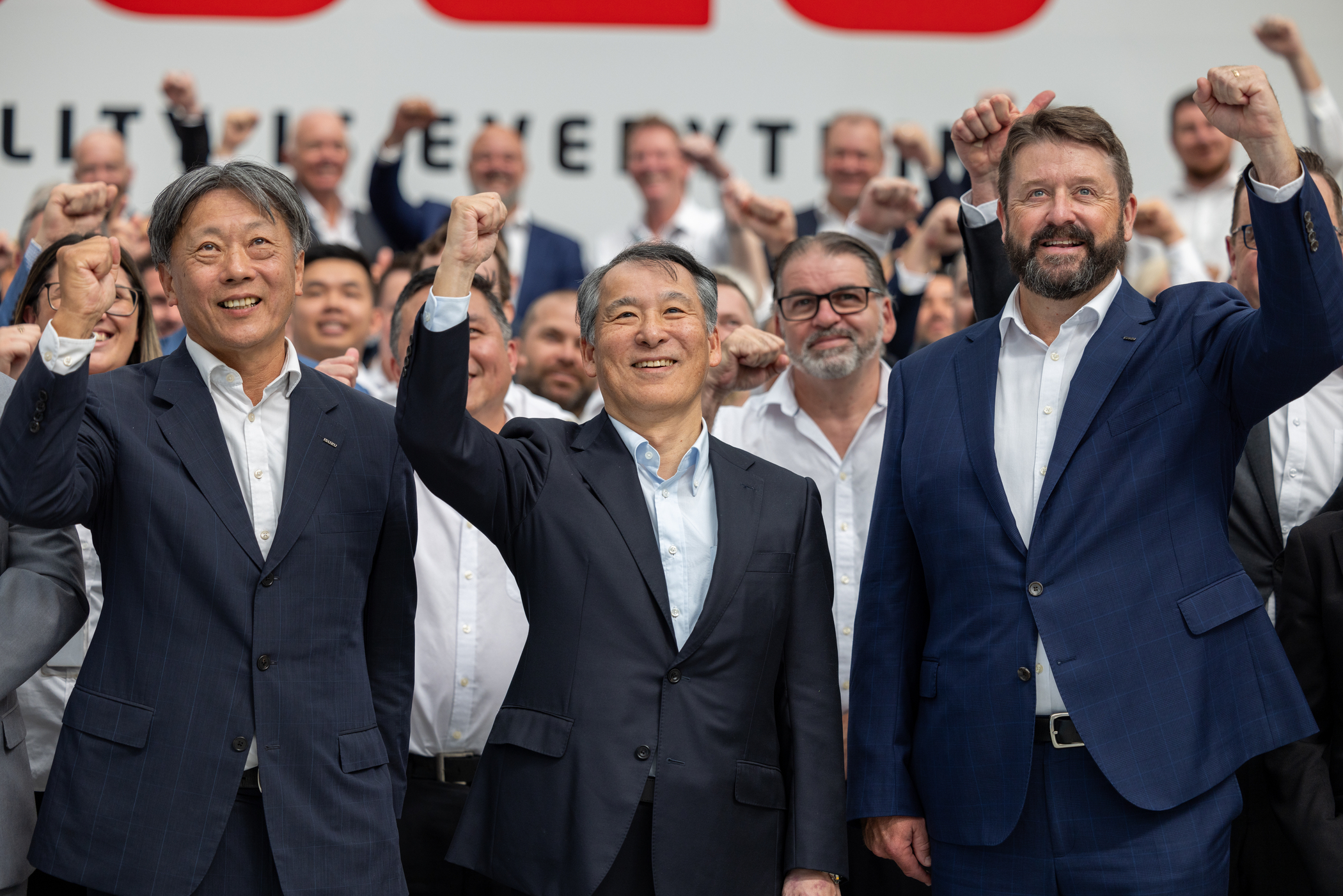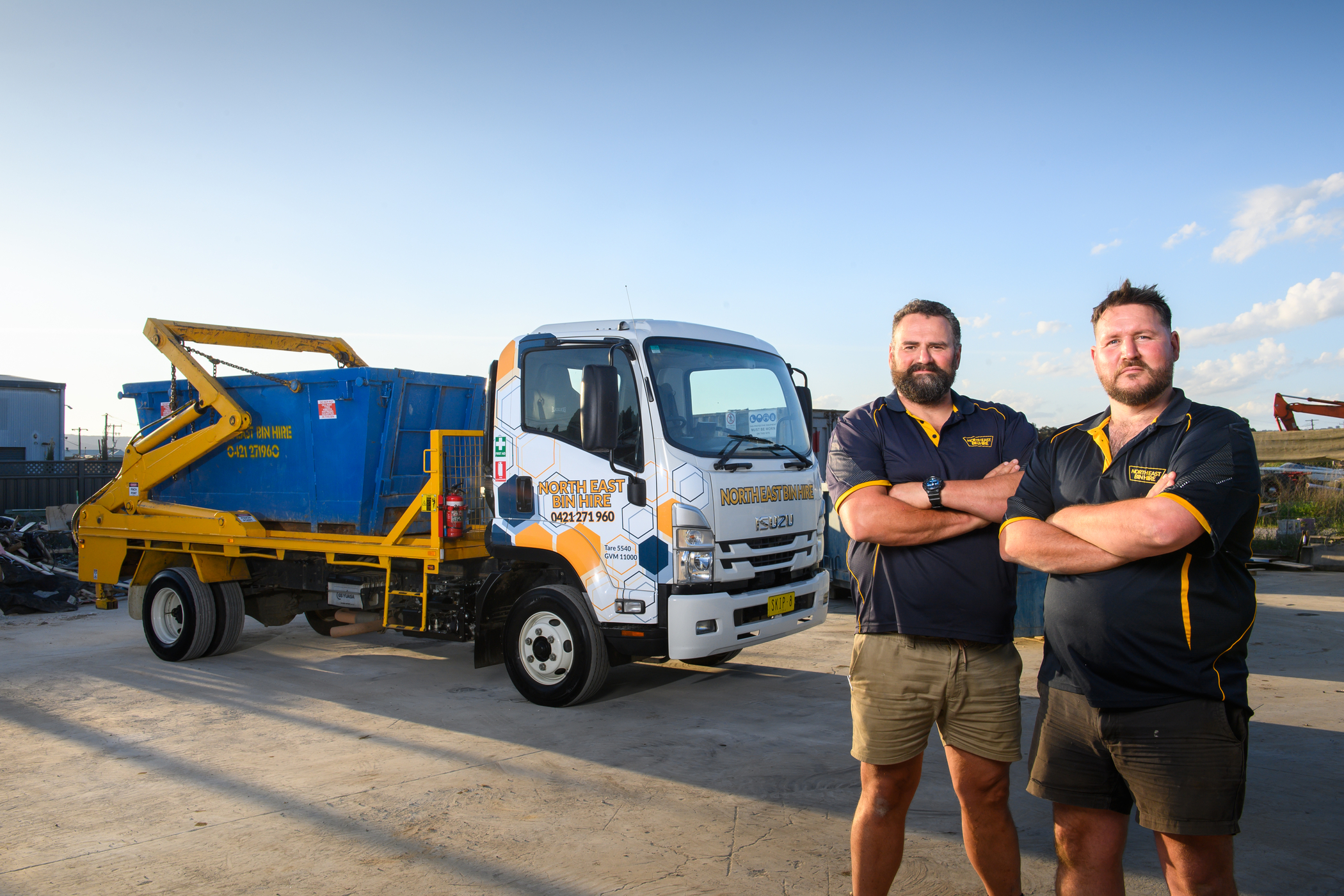Powertorque With Rod Best
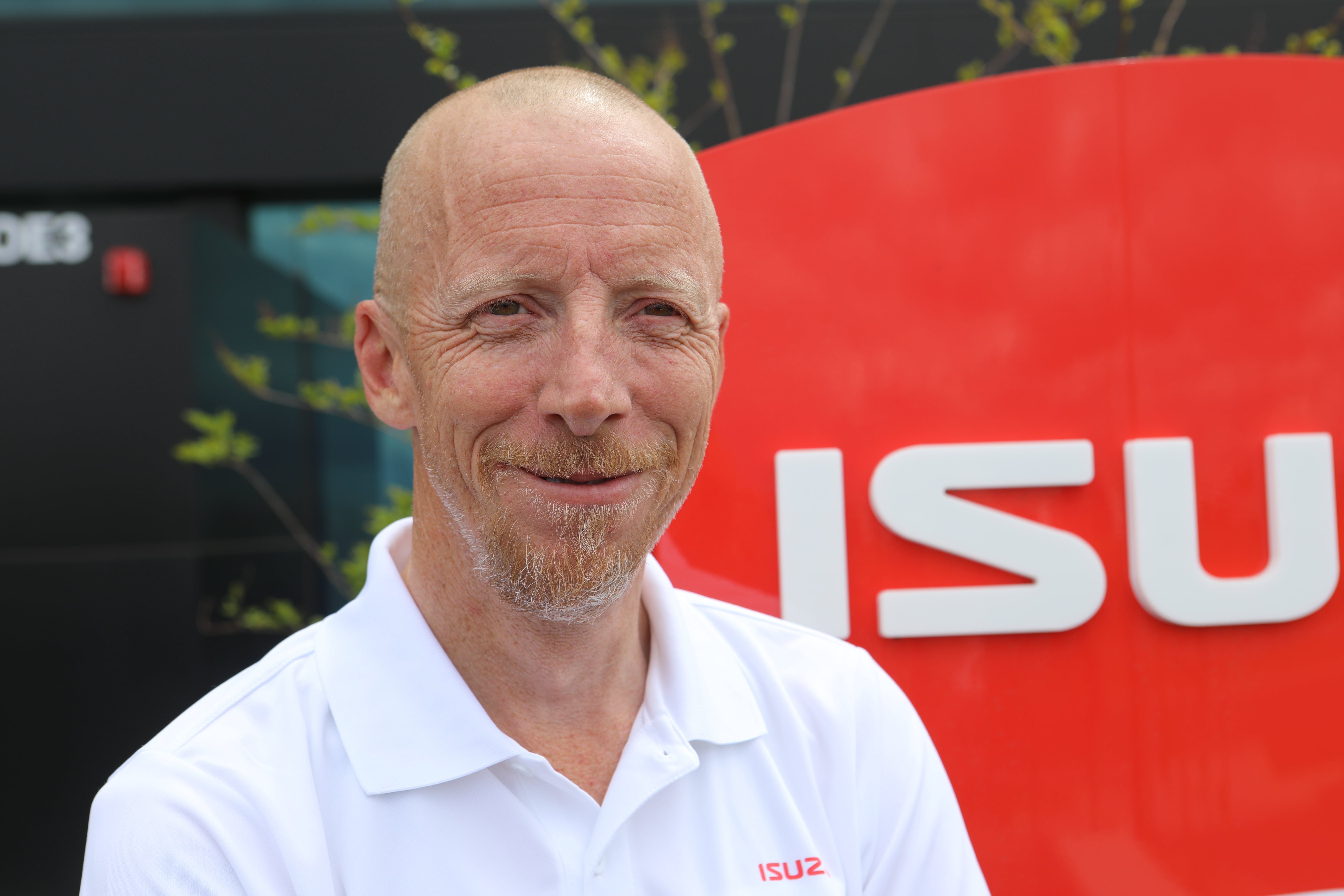
Having kickstarted a career in diesel mechanics at the age of 15, one can safely say that Isuzu Engines Sales Manager Rod Best has more than in-depth knowledge of his field of specialisation.
And if that early head start, followed by an illustrious career in engine sales, doesn’t already affirm his expertise, Rod’s long career recently celebrated 10 years at Isuzu Australia Limited (IAL). In our latest edition of Isuzu Power Solutions, Rod chatted with us about his journey from the UK to Australia, his passion for sales, and the exciting developments that have kept the engines team busy this year. Could you give us a little background about yourself? I grew up in a small town called Tunbridge Wells in Kent, UK, where I did my diesel mechanic apprenticeship. I left school at the age of 15 and spent approximately six years as a fully qualified diesel mechanic working on buses at an independent bus company in the local town. Soon, I moved from buses to trucks. And then I had a brief career in the car industry, working in sales for Mazda cars and others. After that, I worked for the Freight Transport Association, also in the UK, scheduling vehicle inspections. It was a different but interesting role there, dealing with different manufacturers and parties all across the country. What initiated your move to Australia? I initially came to Australia in 1997 as a backpacker. I started in Cairns, and 12 months later I ended up in Perth. It was after this initial visit—when I was flying back and forth to visit friends in various parts of the country—that I realised I like the open spaces and the weather here. I eventually bit the bullet and migrated to Australia in 2004. Following that, did you jump right back into the transport industry? Yes. I worked for another truck brand initially, where I oversaw their remanufacturing program. Following this I moved to Meritor in Sunshine, where I worked in the warranty division. And then 10 years ago, the opportunity with IAL came along. So I moved to IAL as a warranty consultant before moving to their service division as a Zone Service Manager for the Victoria–Tasmania region. Soon after that, I moved to the Isuzu Engines division, and I have worked here in Sales ever since. Working in sales, is that something you enjoy? Would you want to explore something else? Yeah, I enjoy sales. It’s always nice getting out, doing field days and covering different events, and being able to talk to customers, the end users, because they are who we develop our power units for. The job, it’s about understanding their needs, seeing what they do on a day-to-day basis and then customising to their requirements. Being able to chat with a variety of customers and address their specific needs is always exciting, because you never know who you’re going to be talking to next, and what they need help with—it could be an irrigation pump, it could be about a hydraulic setup, it could be anything. That’s a fair range of different products you work with! And speaking about the different engine products you see, what are your thoughts on where the future of engines is headed? I think, over the next five years, you’ll likely see a decline in mechanical engines, as global manufacturing changes. In my opinion, we will see a surge in common rail engines. Mechanical engines are getting older and companies will slowly change manufacturing to one platform, so we are going to start to see manufacturing shift towards the electronic side of things. Of course, that’s going to have its own set of challenges with engine control and market acceptance. And there will be a need to educate customers about the benefits of common rail engines, being more fuel efficient and delivering more power—and that’s going to take some time. What about emissions, though? In that aspect, are common rail engines better? In a common rail engine, fuel injection is more efficient, which leads to lower particulate matter emissions. But on the downside, they will require clean, readily available fuel, which is a challenge. Because unlike mechanical engines, common rail engines are slightly more susceptible to contaminated fuel. So, at the end, it comes down to educating customers about diesel storage and using proper filtration. Of course, Isuzu Engines has engine development as its mainstay. But we understand that engine accessories are also a big part of the department. Could you tell us more about these accessories? A lot of our accessories—skid rails, engine mounts, cooling packages, exhaust systems and filtration—are locally developed. And the team puts in a lot of work on these with our local suppliers. And the accessories that we don’t yet develop locally, we have sourced through others—which ultimately helps our customers. Prior to this, customers had to source for their own; but now we’re able to make them a complete package offering instead of them having to go to yet another supplier for an accessory. And working with the steadily growing Isuzu Engines, what are your thoughts on the department and where it’s headed? The industry is evolving, new technology is constantly coming on board. At Isuzu Engines, we’ve pretty much been on the leading edge of technology, especially with the release of the Pro Panel. And product-wise we’ve got the mechanical engines range pretty much covered—the team has put great effort into them. I only see the technology side of Isuzu Engines getting bigger and bigger. It’s an exciting time for industrial engines, even though not many people think of it as being very exciting—it typically sits in a paddock pumping water all day. But when you think about the 3G and 4G compatibility, as well as remote monitoring capabilities, the sensory-related advancements, and how the industry has been changing, the next few years look nothing but exciting. And on the development side, we are looking at common rail engines. This is going to be a long process because obviously these engines are an entirely different beast to the mechanical power unit we have developed so far. And finally, what are your thoughts on completing 10 years at Isuzu? It has been an interesting 10 years, it’s been a good journey. Time has flown very quickly, and I’m happy about all that we’ve achieved so far. Isuzu is a good company to work for, and I’m looking forward to the next stretch with them.

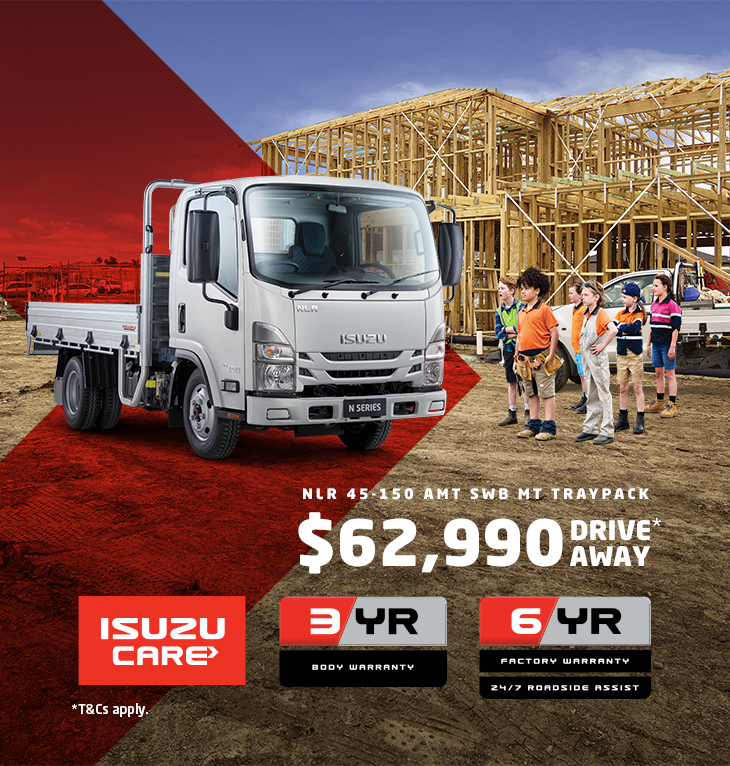
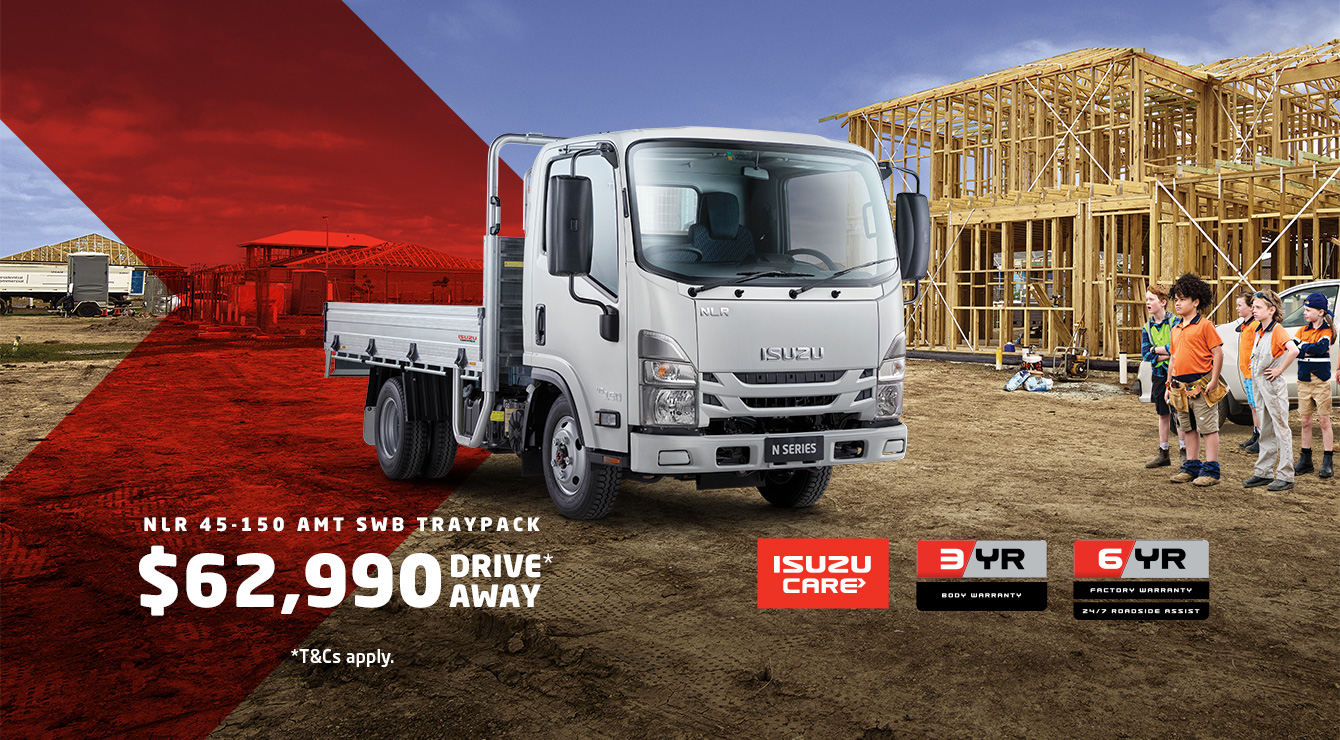
Playtime’s over, get $3,500* to spend on extras.
If you’re ready to get serious about tackling bigger jobs, grab yourself an NLR 45-150 AMT SWB Traypack from the Ready-to-Work range for $62,990 drive away*. And to prove we aren’t playing, buy any NLR Traypack before June 30 and you’ll get $3,500* to spend on genuine accessories or an Essentials service agreement.
Learn more
